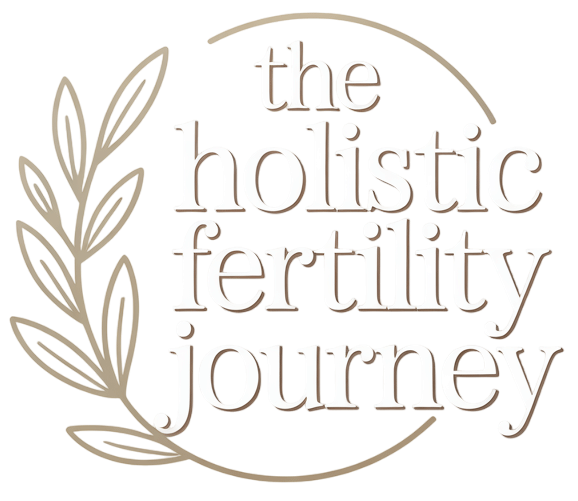Foods Fertility Experts Recommend Avoiding or Minimizing
Let’s zoom in on the main food categories that have been shown to play a negative role in fertility, and the science behind each.
1. Trans Fats: Raising Risks for Ovulation Disorders
Trans fats—commonly found in packaged snacks, fried foods, margarine, and fast food—are known to increase inflammation in the body. Multiple studies highlight a clear association between trans fat intake and reduced fertility, particularly in women experiencing ovulatory disruption (BMJ, 2007). In the Harvard cohort, women who consumed the most trans fats had twice the risk of ovulatory infertility.
- Common sources: Packaged crackers, chips, doughnuts, French fries, baked goods with "partially hydrogenated oils"
- Why avoid: They impair cellular function and increase insulin resistance—a double hit to healthy ovulation.
- Swap for: Nuts, seeds, avocados, olives, and oils like extra-virgin olive or cold-pressed canola.
2. Highly Processed and Sugary Foods
Highly processed foods—think white bread, cereals, candy, and sugary drinks—are absorbed rapidly, sending blood sugar soaring. Chronic spikes and drops in blood sugar don’t just impact energy and mood; they lead to insulin resistance and inflammation, which have been linked to higher rates of miscarriage and polycystic ovary syndrome (PCOS)—a major cause of fertility struggles (Frontiers in Endocrinology, 2019).
- Common sources: Soda, sports drinks, commercial baked goods, sweetened yogurt, fast food desserts.
- Why avoid: Promotes oxidative stress and worsens hormonal imbalances, especially in women with PCOS or endometriosis.
- Swap for: Whole grains, fruit, and naturally sweet treats made at home.
3. Processed Meats: A Men’s Fertility Red Flag
Regular consumption of processed meats—like bacon, sausages, hot dogs, and deli meats—has been associated with lower sperm quality and DNA fragmentation, as shown in research from the American Society for Reproductive Medicine (ASRM Annual Meeting, 2014). For women, processed meats may also contribute to inflammation, which can create a less hospitable environment for conception.
- Common sources: Bacon, ham, salami, bologna, pepperoni, hot dogs.
- Why avoid: Contains nitrates/nitrites and inflammatory compounds that damage reproductive cells.
- Swap for: Lean poultry, wild-caught fish, organic eggs, plant proteins like lentils and chickpeas.
4. Excess Caffeine: Moderation Matters
Caffeine is a part of many daily routines, but high intake—over 300-400mg a day, or roughly more than two large cups of brewed coffee—has been implicated in delayed conception and (in some studies) higher miscarriage risk (CDC, 2022). For those particularly sensitive, even moderate amounts can disrupt sleep and stress hormones, both crucial for fertility.
- Common sources: Coffee, espresso drinks, energy drinks, strong black tea, high-caffeine sodas.
- Why avoid or limit: Affects hormone regulation, sleep quality, and uterine blood flow.
- Gentle shift: Try herbal teas (raspberry leaf, chamomile, rooibos), or limit to one small cup/day.
5. Excess Alcohol: Hidden Impacts Beyond Obvious Risks
While an occasional glass is often part of social life, research suggests that regular or high alcohol intake can decrease fertility in both women and men. Even moderate drinking (7 or more drinks per week) may extend the time to conception and increase risks during IVF (Reprod Biol Endocrinol, 2014). Alcohol disrupts estrogen and testosterone balance, can harm egg and sperm quality, and impairs nutrient absorption.
- Common sources: Regular consumption of wine, beer, spirits, cocktails.
- Why avoid/minimize: Impacts hormone balance, liver detox, and cellular health; increases oxidative stress.
- Supportive shift: Opt for mocktails, sparkling water with citrus, or herbal infusions during fertility preparation.
6. Artificial Sweeteners and Additives
Although the research here is developing, some studies suggest that artificial sweeteners—especially aspartame and saccharin—may negatively affect gut microbiome and hormone function. Data from animal studies (Frontiers in Nutrition, 2021) indicate possible changes in fertility markers with heavy use, though conclusive human data is still pending. For those on a fertility journey, erring on the side of less may be wise.
- Common sources: Diet sodas, sugar-free yogurt and desserts, protein bars, gum.
- Why avoid/minimize: Potential endocrine disruptors and impact on glucose balance.
- Swap for: Naturally sweet foods, light use of honey, maple syrup, or coconut sugar.
7. High-Mercury Fish
Seafood is often praised for its omega-3s, but certain large predatory fish accumulate high levels of mercury—a toxin shown to harm reproductive health and later, fetal brain development (US FDA Fish Advisory). Mercury exposure can reduce fertility in both men and women, and is linked with longer times to conception.
- Fish to avoid when trying to conceive: Shark, swordfish, king mackerel, tilefish, bigeye tuna.
- Why avoid: Mercury interferes with hormone function and egg/sperm quality.
- Fertility-friendly swaps: Salmon, sardines, trout, anchovies, herring (low in mercury, rich in omega-3s).
